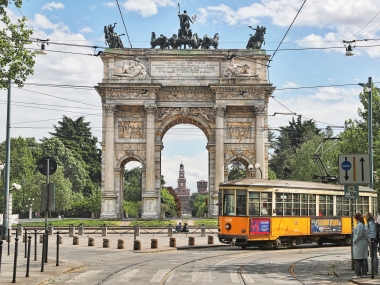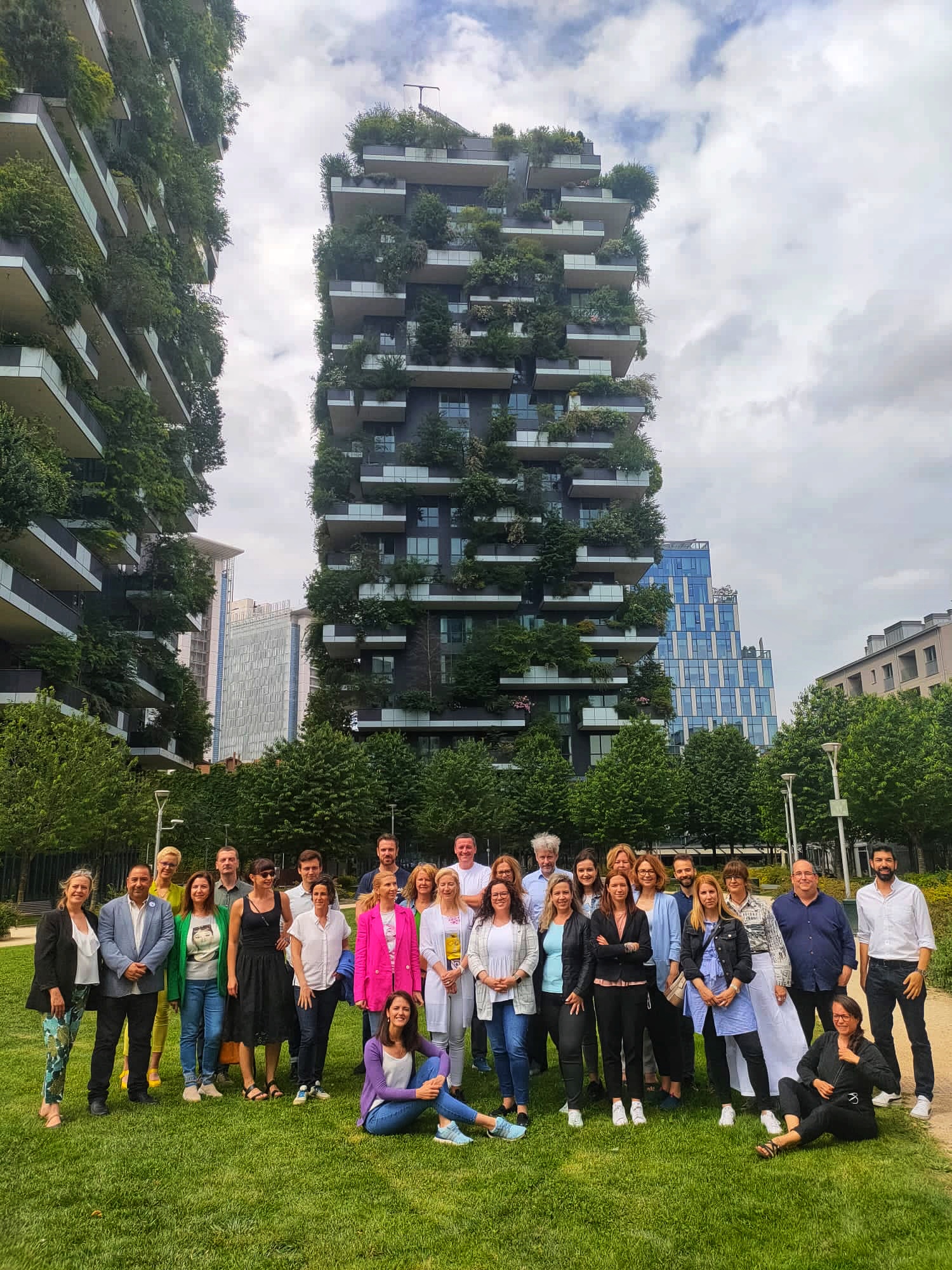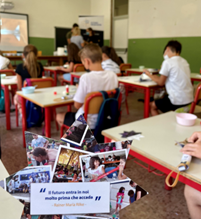#MILAN4CSR: how the City is turning social emergencies into opportunities
Edited on
28 June 2022Milan: opportunities and challenges of a City constantly evolving
Counting almost 1,4 million inhabitants, the City of Milan, acting as CITIES4CSR coordinator, is located at the heart of the Lombardy Region. Well-known for being the economic vibrant heart of northern Italy, in the last 10 years Milan has become an inspiring hub of innovation able to foster projects, initiatives and policies with the aim of improving its citizens’ quality of life through new integrated solutions.

Strongly affected by the pandemic from the social and economic perspective, the City - and its citizens – managed to overcome the difficulties brought by Covid-19 crises through their ability of evolving and adapting to new ways of living, turning emergency into opportunity. In this scenario, Milan became an experimental laboratory for the implementation of bottom-up and innovative recovery strategies such as the “Mutual Aid Fund” considered a successful example of "Territorial Social Responsibility" collecting Corporate Social Responsibility activities from local actors, citizen and business efforts.
In addition, over the years and particularly with the advent of the pandemic, Milan has shed light on the issue of sustainability for a livable future of its citizens. This area of intervention became also a place for experimentation in terms of public-private partnerships with ForestaMi project: an initiative including a special fund where to receive financial donations for new trees planting within the territory of the Metropolitan City of Milan.
Milan and CITIES4CSR: a platform to increase the city potential
Public-private forms of collaboration, as represented by the “Mutual Aid Fund” initiative and the ForestaMi project, have always been in Milan’s DNA not only in ti mes of crisis. In light of this, the City felt the need to capitalize on lessons learnt from spot initiatives developed over the years to enhance the demand-supply system between the public and private sectors. That’s where the participation to CITIES4CSR came from. To maximize existing synergies and create benefits and opportunities for both the Municipality and the local business environment.
mes of crisis. In light of this, the City felt the need to capitalize on lessons learnt from spot initiatives developed over the years to enhance the demand-supply system between the public and private sectors. That’s where the participation to CITIES4CSR came from. To maximize existing synergies and create benefits and opportunities for both the Municipality and the local business environment.
To achieve this objective, Milan started collecting the needs from within the city to discuss them within the Urbact Local Group of CITIES4CSR which is composed of directors, internal staff of the municipality as well as relevant stakeholders working together in a co-creation approach with the aim of developing and implementing a shared integrated action plan on CSR by matching needs of the city and opportunities coming from businesses, associations and external actors.
Once the needs have been identified and projects ideas shared, it is crucial to set the basis of a fruitful collaboration by supporting private stakeholders through the best and - possibly - quickest and simplest bureaucratic and contractual process to reach their aim. This implies a specific preparation on the part of the municipal administration and its staff that, in the long-term vision of CITIES4CSR, is included in the finalization of the Vademecum on CSR and the dissemination of this document through presentations and internal trainings for management positions. This Vademecum, the main CITIES4CSR’S output, will be the main tool to overcome existing obstacles in the process of matching needs of the Municipality and the opportunities provided by private actors and stakeholders through their CSR actions at local level.
Thanks to CITIES4CSR and URBACT, the city of Milan had also the opportunity to exchange many good practices linked to CSR coming from the cities involved in the network, representing ten European cities and nine European countries. Moreover, the project gave all project partners the chance to learn more about CSR and discover how this asset could be useful for the strategic development of local plans thanks to the CSR Academies to deepen into CSR aspects and its different topics with contributions of ad-hoc experts.
During the project final event organized in Milan in May 2022, network cities came together to share their local experiences and small pilot projects implemented in their municipalities to show the cross-cutting aspects of Corporate Social Responsibility and how this aspect was strategic for the development of local policies to improve cities.
Milan's Urbact Local Group and Small Scale Actions
Since the beginning of the project, the focus of the Municipality of Milan has been on social issues and the need to contract on these aspects became even more evident with the advent of the pandemic. The main priorities identified for private support included: improving the attractiveness and self-sufficiency of neighborhoods; transforming public schools into safe and inspiring meeting spaces for communities; digital inclusion, especially targeting school students; and increasing access to healthy and nutritious food for all citizens.
Milan’s ULG stakeholders (private, public, philanthropic, academic and business) were key in addressing these priorities also through the co-creation of the Small Scale Actions and their implementation. Milan focused on more than one Small Scale Action with the idea of setting up long term projects/partnerships, rather than one off events/interventions:
- Connessi per crescere (Connected to Grow - Assolombarda, Fondazione Cariplo and Sodalitas): a supply chain for the ongoing donation of laptops, tablets and connectivity to children in need through the QuBì network.
- Milano Brilla (Milano Shines - Bracco Foundation and Cariplo Foundation with the sponsorship of the City of Milan): camp on STEM skills for about 90 children aged 9-12. The first 5 workshops were held in June 2021;
- PCs and Communities for Minors: during the development of Connected to Grow initiative, the need for some companies to donate refurbished stationary PCs emerged. Fondazione Sodalitas and the Municipality of Milan accepted the request and organized a small hub to collect and re-distribute fixed PCs to communities for minors that requested them through the Welfare Department.
- Enhancing Neighbourhood’ Schools (Overcome disparities between 'center - suburbs' and turn schools into attractive neighbourhood landmarks). In June 2021, a two-day mural project at Scuola Sottocorno was the result of a collaboration of no profit stakeholders (1 Foundation, 1 Association and the Municipality of Milan) organized within the frame of the “play street” festival.



 Submitted by Alessia Dagradi on
Submitted by Alessia Dagradi on
